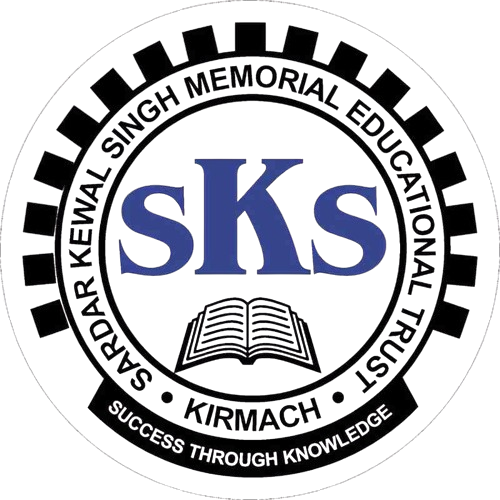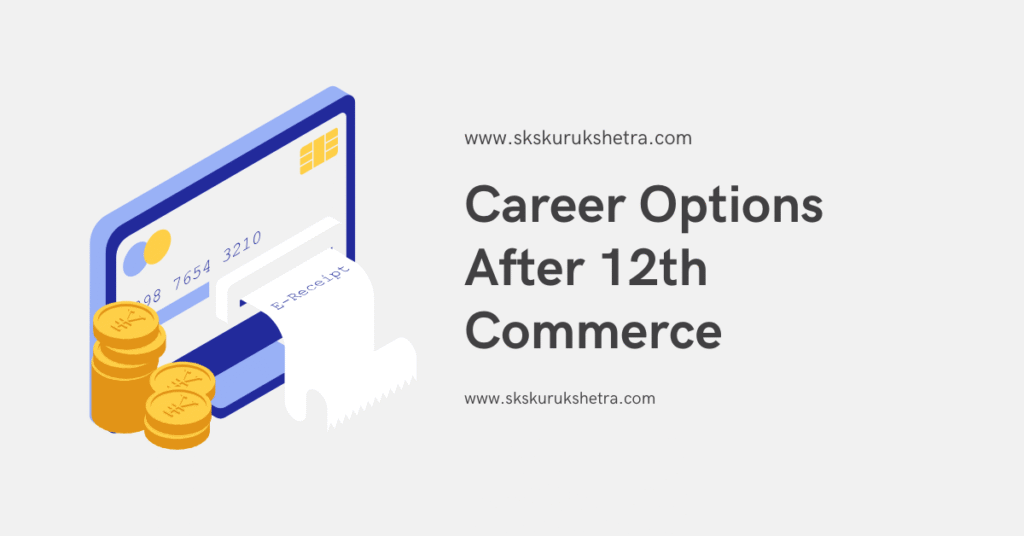Choosing the right path after completing 12th commerce can be both exciting and overwhelming. Commerce students today enjoy a vast array of opportunities—from traditional fields like accounting and banking to emerging areas such as digital marketing and data analytics.
This article dives deep into career options after 12th commerce, providing you with a one-stop guide to understand, evaluate, and select the best avenue that aligns with your interests, strengths, and long-term goals.
By the end of this comprehensive exploration, you will have clarity on the courses, skills, entrance exams, future scope, and practical tips to launch a successful career—without having to look elsewhere.
Why Commerce?
Commerce as a stream offers a balanced mix of theoretical knowledge and practical skills in finance, economics, business law, and management. Key advantages include:
- Versatility: Whether you’re inclined towards numbers, management, or creativity, commerce has something to offer.
- Strong Foundation: Core concepts like accounting, taxation, and business studies lay a solid groundwork for various professions.
- High Demand: Every industry—private or public—needs commerce professionals, ensuring steady job opportunities.
- Entrepreneurial Edge: Commerce education equips you with business acumen, preparing you to start your own ventures.
Self-Assessment: Identifying Your Interests and Strengths
Before diving into specific careers, reflect on the following:
- Aptitude for Numbers vs. Creativity
- Do you enjoy working with figures, ledgers, and financial statements?
- Or are you more attracted to design, content creation, and communication?
- Long-Term Goals
- Do you envision yourself as a corporate executive, an entrepreneur, or a specialist (e.g., chartered accountant)?
- Would you prefer a stable government role or a dynamic startup environment?
- Work Style
- Analytical and structured work (e.g., auditing, analytics).
- Client-facing and negotiation-driven roles (e.g., sales, law).
- Creative and flexible assignments (e.g., marketing, graphic design).
Answering these questions will help you narrow down your choices and ensure a fulfilling career path.
Finance & Accounting
a. Chartered Accountancy (CA)
- Overview: Regarded as the gold standard in finance, CAs handle auditing, taxation, and financial advisory.
- Eligibility & Path:
- Clear the CA Foundation exam (after 12th commerce).
- Complete Intermediate (IPC) and Articleship training.
- Pass the Final exams.
- Key Skills: Analytical thinking, attention to detail, ethical standards.
- Future Scope: Auditing firms, Big Four consultancies, corporate finance departments, independent practice.
b. Bachelor of Commerce (B.Com)
- Overview: A versatile undergraduate degree covering accounting, finance, and economics.
- Specializations: B.Com in Taxation, Banking, Insurance, Financial Markets, e-Commerce.
- Key Skills: Core accounting, business law, taxation principles.
- Career Paths: Corporate accountant, tax consultant, financial analyst, lecturer, banking professional.
c. Company Secretary (CS)
- Overview: CS professionals ensure corporate governance and legal compliance within companies.
- Path: CS Foundation → Executive → Professional courses by the ICSI.
- Key Skills: Corporate laws, secretarial practices, compliance management.
- Future Scope: Corporate secretary roles, compliance officer, corporate consultant.
Business & Management
a. Bachelor of Business Administration (BBA)
- Overview: Focuses on management principles, marketing, HR, operations, and entrepreneurship.
- Eligibility: 12th commerce pass.
- Specializations: International Business, Marketing, Human Resources, Finance.
- Skills: Leadership, communication, strategic thinking.
- Career Paths: Management trainee, marketing executive, HR associate, business development.
b. Bachelor of Management Studies (BMS)
- Overview: Similar to BBA but often more theory-intensive and research-oriented.
- Key Skills: Management theories, statistical tools, research methodologies.
- Career Paths: Management consultant, market researcher, operations manager.
c. Bachelor of Hotel Management (BHM)
- Overview: Suited for those interested in hospitality, tourism, and service industries.
- Key Skills: Customer service, food & beverage management, housekeeping, front office operations.
- Career Paths: Hotel manager, event planner, restaurant manager, airline hospitality.
Law & Humanities
a. Integrated Law Courses (B.Com LL.B)
- Overview: Five-year integrated program combining commerce and law subjects.
- Eligibility: 12th commerce pass; entrance exams like CLAT, AILET, LSAT.
- Skills: Legal reasoning, debate, negotiation, understanding of commercial laws.
- Career Paths: Corporate lawyer, legal advisor, government solicitor, judicial services.
b. Bachelor of Arts (BA) in Economics or Business Law
- Overview: Offers deeper theoretical grounding in economics or legal aspects of business.
- Skills: Economic modelling, policy analysis, legal drafting.
- Career Paths: Policy analyst, legal consultant, economic researcher, civil services.
Banking, Insurance & Finance Services
a. Bachelor of Banking & Insurance (BBI)
- Overview: Specialized program focusing on banking operations, insurance principles, and risk management.
- Skills: Risk analysis, customer relationship management, financial instruments.
- Career Paths: Bank probationary officer, insurance underwriter, risk analyst.
b. Certifications & Competitive Exams
- Certified Financial Planner (CFP)
- NISM Certifications (Mutual Funds, Securities Markets)
- Entrance Exams: IBPS PO, SBI PO, RBI Grade-B, insurance exams (LIC AAO).
Digital & IT-Enabled Services
a. Bachelor of Computer Applications (BCA)
- Overview: Bridges commerce and computing, covering programming, networking, database management.
- Skills: Coding (Java, Python), web development, software testing.
- Career Paths: Software developer, web designer, systems analyst.
b. Digital Marketing
- Overview: Highly sought-after field involving SEO, SEM, content marketing, social media strategy.
- Short-Term Courses: Google Digital Garage, HubSpot Academy, Coursera specializations.
- Skills: Content creation, analytics, advertising platforms (Google Ads, Facebook Ads).
- Career Paths: SEO specialist, social media manager, content strategist.
c. Data Analytics & Business Intelligence
- Overview: Converts raw data into actionable insights for businesses.
- Courses: B.Sc in Data Analytics, certifications in SQL, Tableau, Power BI.
- Skills: Statistical analysis, data visualization, critical thinking.
- Career Paths: Data analyst, BI developer, market analyst.
6. Design & Creative Arts
a. Bachelor of Fashion Design (B.F.D)
- Overview: Ideal for commerce students with an eye for design.
- Skills: Pattern making, fabric science, fashion illustration.
- Career Paths: Fashion designer, merchandiser, stylist.
b. Bachelor of Fine Arts (BFA) in Graphic Design
- Overview: Focuses on visual communication, digital illustration, branding.
- Skills: Adobe Creative Suite, typography, layout design.
- Career Paths: Graphic designer, UI/UX designer, art director.
Hospitality & Tourism
- Diploma in Hospitality Management
- Bachelor of Travel and Tourism Management (BTTM)
- Short-Term Courses: Airline Ground Staff Training, Cruise Hospitality.
- Skills: Customer service, logistics planning, multicultural communication.
- Career Paths: Tour manager, airline operations, hotel front-office manager.
Government & Public Sector
a. Banking & Financial Services
- Roles: Probationary Officer (PO), Clerk, Specialist Officers through IBPS, SBI, RBI exams.
- Skills: Reasoning, quantitative aptitude, general awareness, English.
b. Civil Services
- Path: Bachelor’s degree → UPSC Civil Services Exam (IAS, IPS, IFS).
- Skills: Analytical writing, current affairs, public administration knowledge.
c. Public Sector Undertakings (PSUs)
- Roles: Management Trainee, Executive positions in companies like ONGC, BHEL, GAIL via GATE or specific exams.
- Skills: Technical understanding (where applicable), banking & finance knowledge, aptitude.
Short-Term Courses & Certifications
- Certified Management Accountant (CMA)
- Financial Modeling & Valuation Analyst (FMVA)
- Diploma in Forex & Treasury Management
- Certificate in International Business
- Advanced Excel & Tally ERP Courses
Short-term courses help bridge the gap between academic knowledge and industry requirements, making you job-ready faster.
Emerging Fields & Niche Domains
- Sustainability & Green Finance
- Fintech & Blockchain
- E-commerce Management
- Behavioral Economics
- Sports Management
- Healthcare Administration
These sectors are growing rapidly, offering unique roles that combine commerce fundamentals with specialized knowledge.
Future Scope & Industry Trends
- Automation & AI in Finance: Demand for professionals who can work alongside AI tools.
- Data-Driven Decision Making: Data analytics becoming integral to business strategies.
- Gig Economy & Freelancing: Opportunities in consultancy, content creation, and virtual assistance.
- Globalization: International certifications (e.g., ACCA, CFA) gaining importance.
Tips to Choose the Right Career Option
- Research Thoroughly: Attend webinars, interact with seniors, read industry reports.
- Assess ROI: Consider the cost, duration, and placement records of courses.
- Internships & Workshops: Gain hands‑on experience to test your interest.
- Soft Skills: Communication, teamwork, leadership, and adaptability are crucial.
- Network: Join professional associations, LinkedIn groups, and alumni networks.
Role of Institutions in Shaping Careers
A supportive college environment can accelerate your growth.
For example, SKS Group of Colleges, located near NIT, Kirmach Road, Kurukshetra, offers industry-aligned commerce programs with experienced faculty, modern infrastructure, and a strong placement record—helping students transition smoothly from campus to career.
Conclusion
The landscape of career options after 12th commerce is vast and continually evolving. From traditional routes like CA, CS, and B.Com to modern avenues such as digital marketing, data analytics, and fintech, commerce students have ample opportunities to build rewarding careers.
By assessing your strengths, researching thoroughly, acquiring relevant skills, and choosing the right institution, you can embark on a path that not only aligns with your passion but also promises growth and stability.
Use this guide as your roadmap—and remember, the choices you make today shape the professional you become tomorrow. Good luck!
14. Frequently Asked Questions
Which is the best course after 12th commerce?
It depends on your interests. If you love numbers, CA or B.Com (Hons) could be ideal; if you’re inclined towards management, consider BBA or BMS; for law enthusiasts, integrated law programs are perfect.
Can I pursue digital marketing after 12th commerce?
Absolutely! Short‑term certifications paired with internships can launch your career in digital marketing.
Is B.Com general enough for all commerce careers?
Yes, B.Com provides a strong foundation. You can specialize later through postgraduate studies or professional certifications.
Do I need strong maths skills for commerce?
Basic quantitative aptitude is essential, especially for finance‑related courses. However, many programs focus more on accounting principles than advanced maths.
What are the top government job options for commerce students?
Banking exams (IBPS, SBI PO), RBI Grade-B, and civil services are popular choices.

